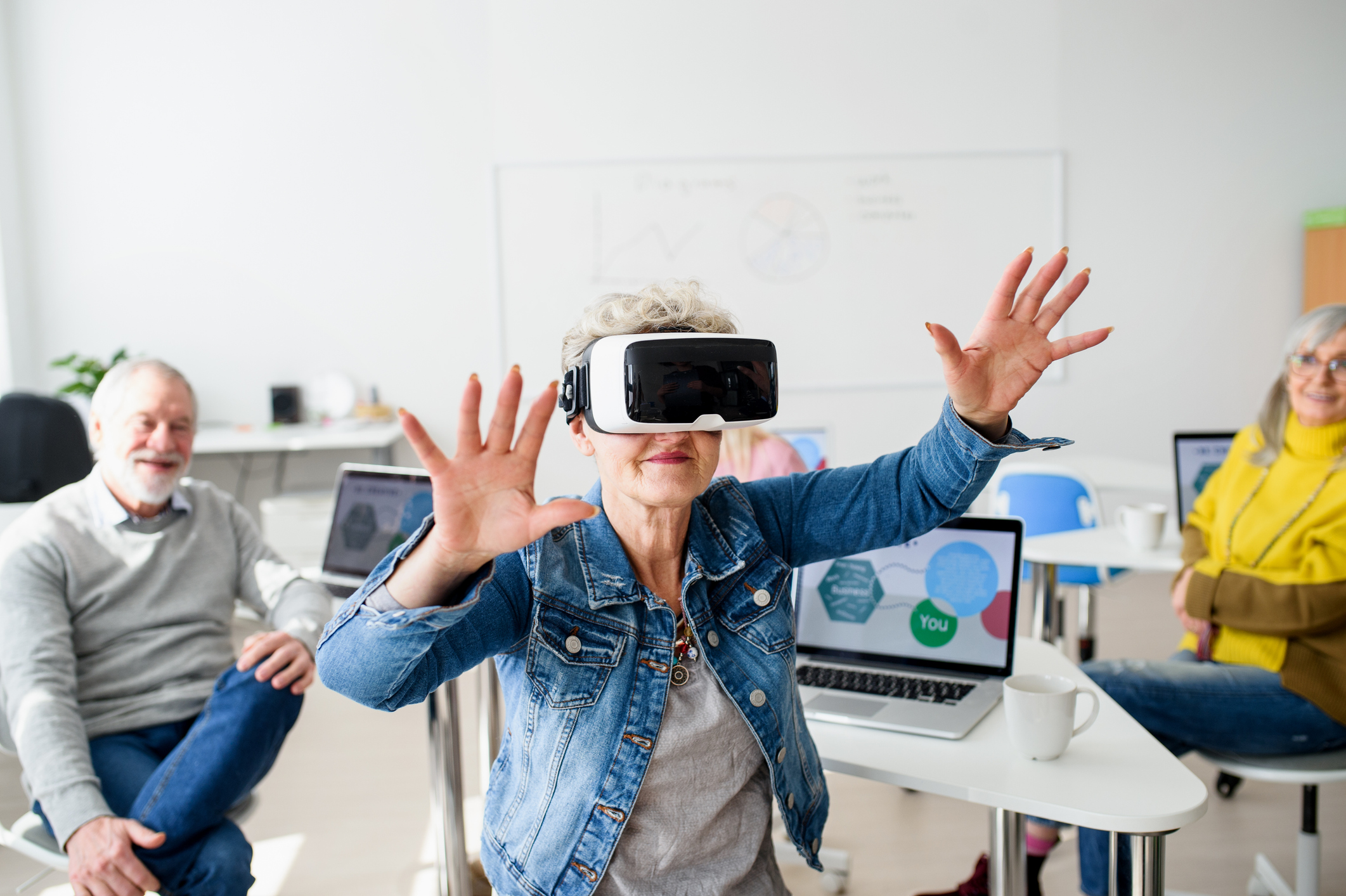Even without the events of the past 14 months, elderly adults who face mobility or other obstacles to travel can begin to lose their sense of connection with the world, other people, and nature. But a new study that partners 1,200 residents of a Florida senior’s community with Stanford University researchers is investigating how virtual reality (VR) can help older adults develop a greater acceptance for technology, a closer relationship with staff caregivers, and reduced pain and anxiety.
According to a recent Associated Press release, using virtual reality, elderly adults can travel the world, hike in the woods, tour the space station, or experience skydiving – all from their home and regardless of any disabilities. Researchers couple participants with volunteers who are trained to ensure residents are able to cope with any discomfort, such as motion sickness, and can stop the experience if virtual reality becomes overwhelming.
The Stanford study is investigating if VR could help combat social isolation and boost emotional well-being for elderly adults. Researchers are also interested if the technology would benefit older adults with dementia and help manage mood disorders or agitation. Many people with dementia experience “sundowning”; a drastic mood shift that occurs most often at dusk and can be difficult for caregivers to manage. Virtual reality could provide a calming, safe escape into a world that might otherwise be inaccessible.
Researchers stress that VR technology should be used, at least the first few times, with the direct support of a trained caregiver or volunteer to ensure older adults are not left unable to stop an experience that causes any kind of distress. If administered properly, virtual reality could be an exciting tool to bring the world and new or familiar places, people, and animals back into the lives of seniors.
Learn more about Stanford’s Virtual Human Interaction Lab/MyndVR Study here.






Add Your Voice
0 Comments
Join the Discussion